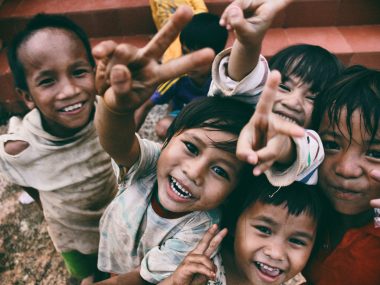A tale of ‘two cities‘
With her trusty cane, Auntie Poh walks sprightly into the distribution centre, stopping to chit-chat, exuding an easiness and camaraderie that can only be forged from years of shared experiences among her multi-racial neighbours.
Her energetic demeanour belies the fact that she suffers from advanced arthritis and walks with an increasing limp due to her bow-leggedness. The lines on her weathered face hold memories of a lifetime of challenges, yet her eyes shine with a glimmer of hope and determination that has kept her going through it all.
Auntie Poh is akin to a human map of this run-down part of her beloved neighbourhood. Living among dilapidated buildings, and trash-strewn alleys, she is a natural historian and a treasure trove of fascinating stories.
Flitting effortlessly between English, Cantonese and Malay, she tells of her growing-up years with such vivid details that you can’t help but be transported back to the time when this neighbourhood was not divided between the rich and the poor areas.
Auntie Poh has been living in Bangsar all of her life. Back then, the roads and back alleys were her playgrounds; the street hawkers were her friends and family. She was orphaned when a fire broke out, leaving her fending for herself since the age of seven. She moved into the Sri Pahang public housing flats in the 70s and saw first-hand how her ‘kampong’ was transformed.
Her once bustling and thriving part of Bangsar is now a forgotten, run-down section that is a far cry from its former glory, with once lively streets now lined with decrepit buildings and dilapidated shops, their once vibrant facades faded and peeling.
Just over the cracked window of her one-room public flat, which she shares with her brother, she sees the construction of a multi-storey condominium on the other, rich side of Bangsar. The stark contrast between the haves and the struggling poor is not just jarring – it is downright heartbreaking.
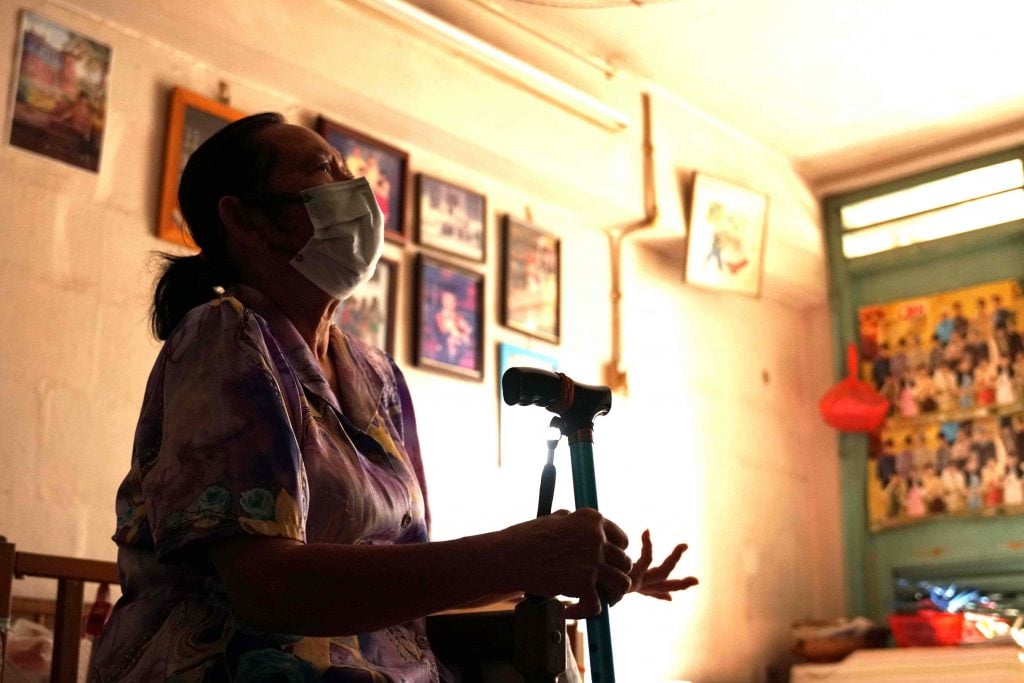
Give.Asia’s Food Drive
Auntie Poh (and her fascinating story) was one of the many residents we met during the food distribution drive of Give.Asia and Ti-Ratana Welfare Society.
Over a blistering and bustling Wednesday morning, volunteers from Give.Asia distributed dry food packages, consisting of essential food items such as rice, cooking oil and biscuits, to 27 families in the low-cost housing estate.
Volunteers spent the morning helping to carry the heaving food bundles to the residents’ flats, often praying and hoping that at least one of the lifts was working, so as not to have to trudge up the stairs to the 14th floor! It was a reality that many of our volunteers had not seen before, and it was truly a humbling experience.
The food distribution drive didn’t just end at Bangsar. We continued to the Public Health and Welfare Association Centre, where 200 packs of freshly cooked food, and bottled water were distributed to the residents in the Chow Kit area.
Long queues formed even before we were finished setting up, with some towing their kids along so that they could receive the milk powder specially reserved for families with children.
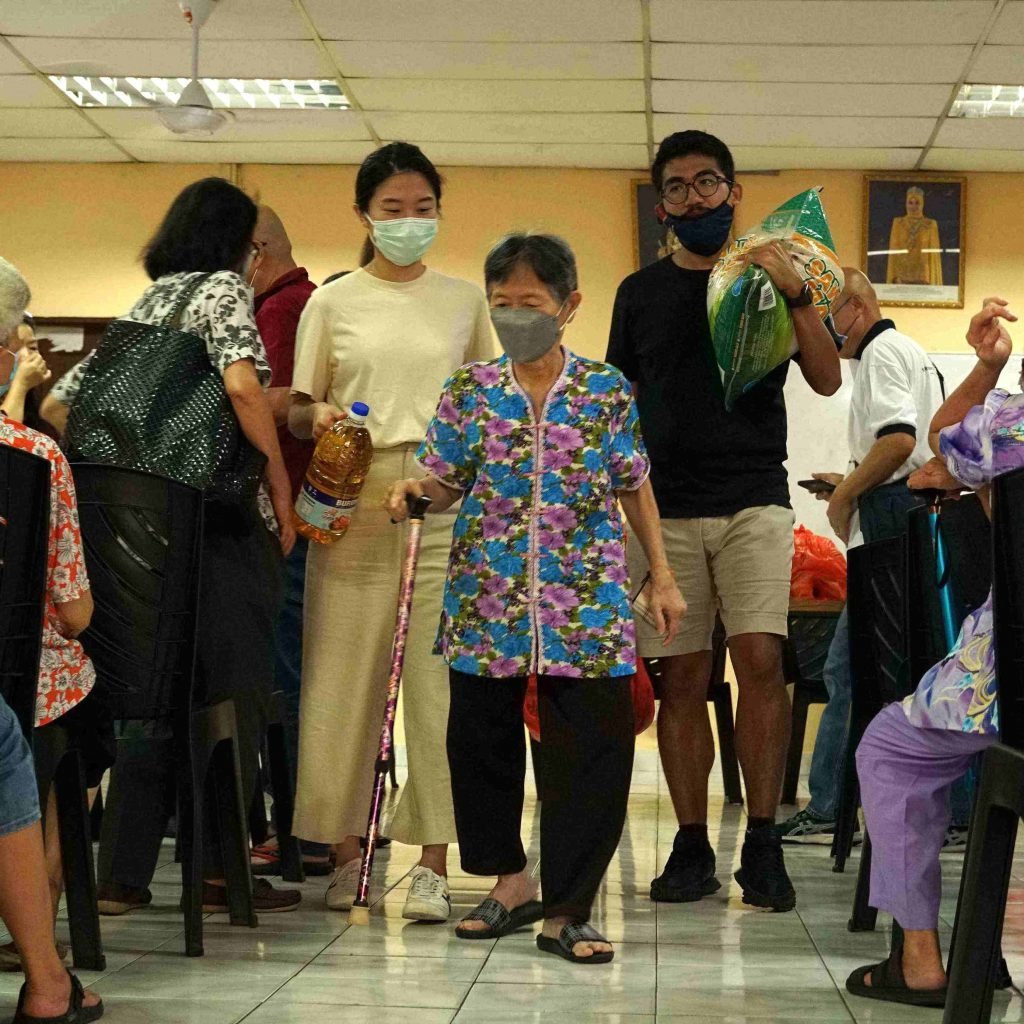
Give.Asia’s volunteers helping residents of Sri Pahang flats in Bangsar to carry their food packages to their units 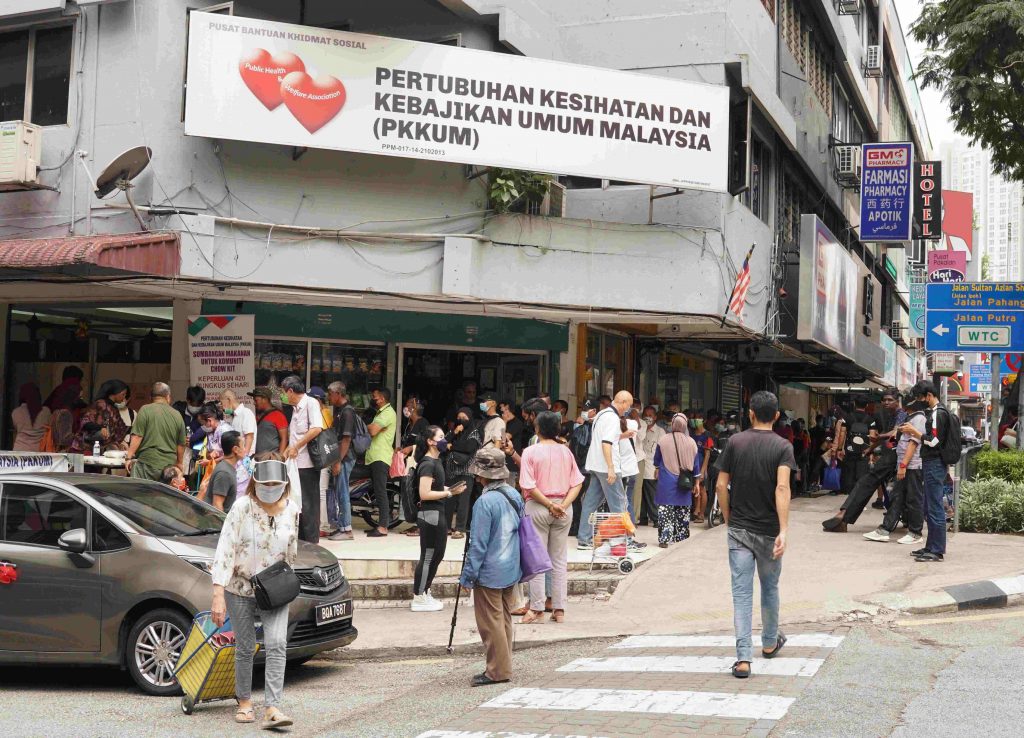
Long lines at the food drive in Chow Kit
Zero Hunger Movement – #FeedItForward
The food drive was a part of Give.Asia’s Zero Hunger movement – our commitment to end hunger in Malaysia, where we partner with NGOs and food kitchens to help alleviate the increasing food insecurity issue that is the sad reality facing many Malaysian families right now. The goal of the movement is simple – to feed one person one meal a day.
The Zero Hunger movement stems from the thousands of pleading calls for food aid that child activist and our Give.Asia champion, Dr Hartini, receives on a daily basis. Recognising that much more needs to be done on the ground level to address both hunger and malnutrition sustainably, we launched the Zero Hunger movement to spearhead the concept that everyone can be a part of something bigger and help change the lives of these communities in need.
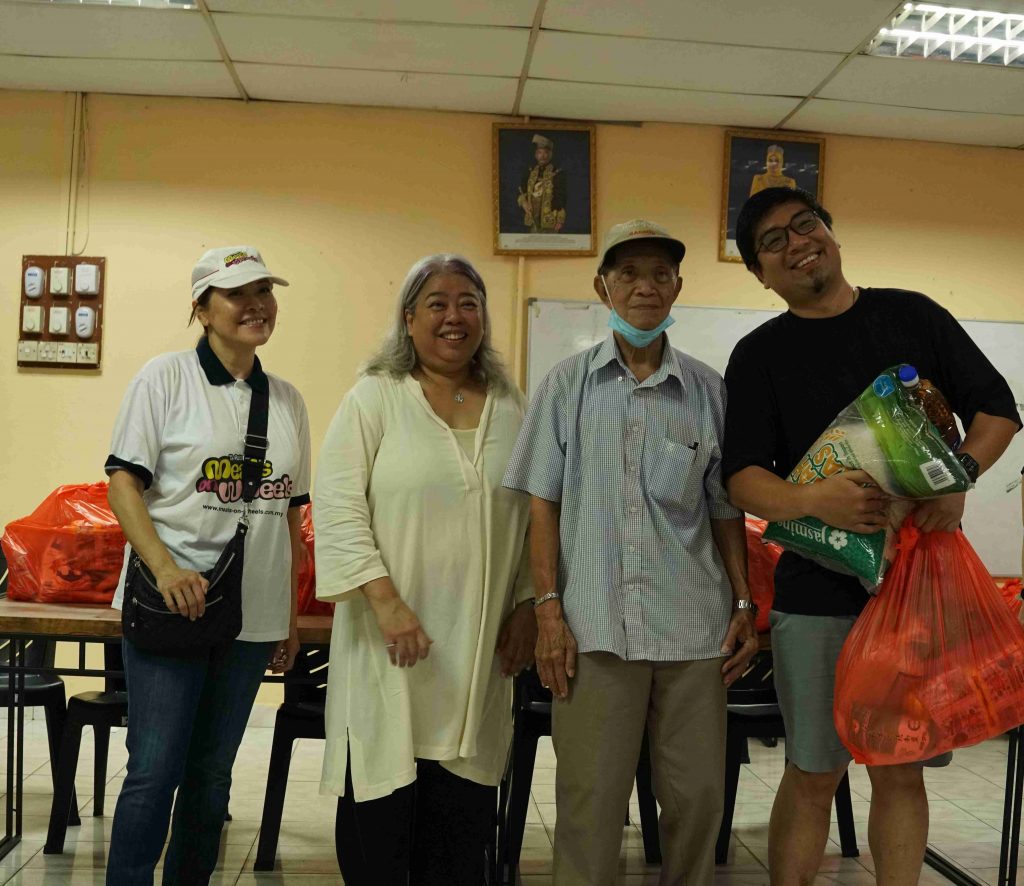
Micro, monthly giving = big impact
Giving doesn’t always have to be through huge amounts of one-time donations (though, that is always welcome) because, let’s face it, we are all also trying to make ends meet. But, we also know that we want to give back to society.
This is why Give.Asia kickstarted the Zero Hunger movement. We believe that when givers give a few dollars a month, little by little, they will have contributed to something bigger.
For RM10, which is equivalent to USD2.50 or SGD3 per month, you can feed one meal, to one person, every month. It is amazing to think that such a small act of kindness can fill an empty stomach, and that one less person goes to bed hungry.
The Zero Hunger movement aims to empower givers to see a different side to giving, that it is not the size of the donation that matters; it is the collective effort of many people coming together to give what they can. It is simple, affordable and impactful.
You may not have met the resilient Auntie Poh from Bangsar, but with a micro monthly giving, you would have helped her and many more like her, get through their reality of life, one meal at a time.
To learn more about Zero Hunger, please visit
https://give.asia/zero-hunger#/
Sources:
https://www.thestar.com.my/starpicks/2021/04/19/heeding-plight-of-the-needy
https://www.nst.com.my/opinion/columnists/2020/02/563793/rethink-how-we-measure-poverty



